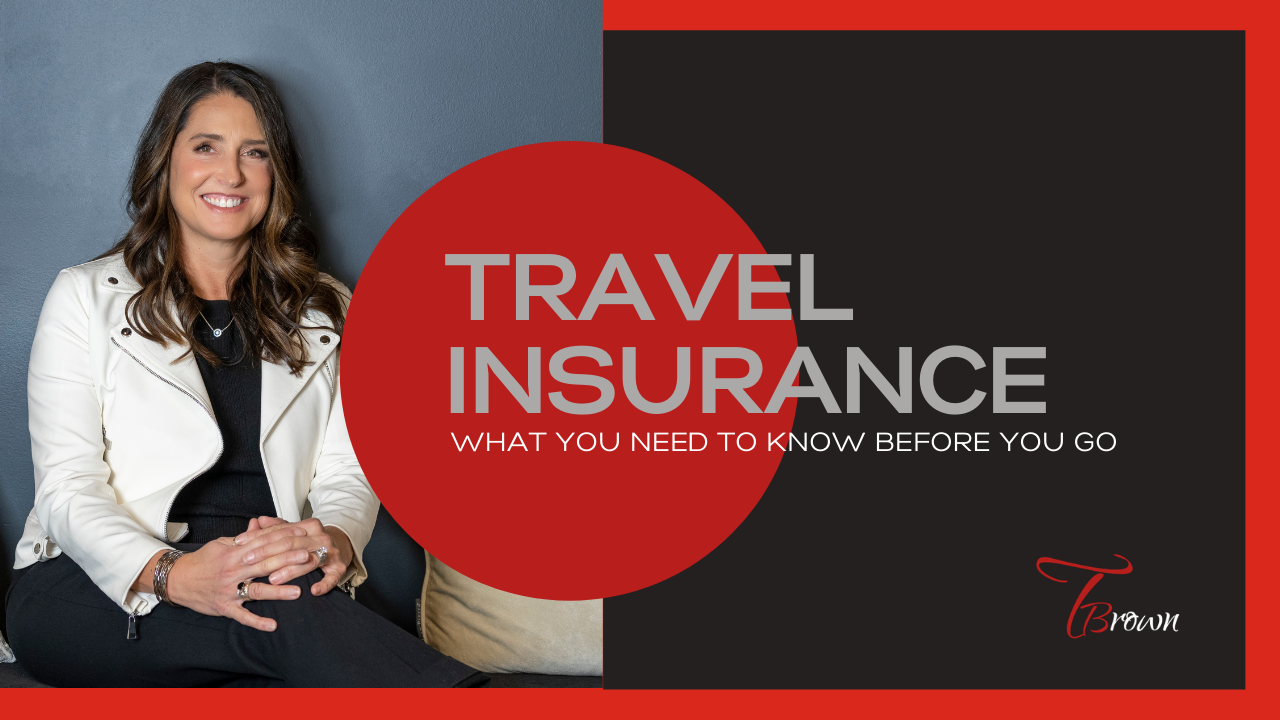Traveling can be an exhilarating experience, whether it’s a dream vacation or a trip for a special occasion. However, unforeseen circumstances can arise, potentially leading to financial losses and disruptions to your plans. This is where travel insurance comes in. In this comprehensive guide, we will explore the ins and outs of travel insurance, helping you understand what it is, what it covers, and whether it’s worth investing in. By the end, you’ll have the knowledge to make an informed decision and safeguard your travel adventures.
What is Travel Insurance?
Travel insurance is a form of coverage designed to protect travelers against various risks and financial losses that may occur while they are away from home. It provides peace of mind by offering financial protection for a range of potential issues, from minor inconveniences to more serious emergencies. While not everyone may require travel insurance, understanding its benefits and limitations can help you make an informed decision when planning your next trip.
What Does Travel Insurance Cover?
Travel insurance coverage can vary depending on the policy and provider you choose. However, here are some common areas that travel insurance can cover:

1. Medical Expenses and Emergency Medical Evacuation
One of the most important aspects of travel insurance is its ability to protect you from unexpected medical expenses while abroad. Most health insurance plans have limited coverage outside your home country, and some may not cover international travel at all. Travel insurance can fill this gap, providing coverage for medical treatments, hospital stays, and emergency medical evacuations.
2. Trip Cancellation and Interruption
Life is unpredictable, and sometimes circumstances arise that force you to cancel or cut short your trip. Whether it’s due to an unexpected illness, a family emergency, or natural disasters, travel insurance can help reimburse you for non-refundable expenses such as flights, accommodations, and tour packages.
3. Travel Delay and Missed Connections
Flight delays and missed connections can be frustrating and costly. Travel insurance can provide compensation for additional expenses incurred during a delay, such as meals, accommodation, and transportation. It can also cover the cost of rebooking flights or arranging alternative transportation to reach your destination.
4. Lost or Delayed Luggage
Lost or delayed luggage can put a damper on your travel experience. Travel insurance can provide coverage for the replacement of essential items and reimbursement for any necessary purchases until your belongings are returned. This coverage is particularly valuable when airlines have limitations on compensation for lost baggage.
5. Personal Liability
Accidents happen, and if you accidentally cause damage to someone else’s property or injure someone while traveling, you may be held liable for the expenses. Travel insurance can offer personal liability coverage, protecting you from potential legal and financial consequences.
6. Emergency Assistance Services
When you’re in an unfamiliar location, navigating language barriers and unfamiliar healthcare systems can be challenging. Many travel insurance policies include 24/7 emergency assistance services, providing access to a helpline for medical advice, emergency medical transportation coordination, and other support services.
What Travel Insurance Might Not Cover
While travel insurance offers valuable protection, it’s essential to understand its limitations. Here are some common exclusions or limitations you should be aware of:
1. Preexisting Medical Conditions
Travel insurance may not cover claims related to preexisting medical conditions, unless you purchase a policy with a preexisting condition waiver. It’s crucial to disclose any preexisting conditions when purchasing travel insurance to ensure you have the appropriate coverage.
2. High-Risk Activities
If you plan to engage in high-risk activities such as extreme sports or adventure activities, standard travel insurance policies may not provide coverage. You may need to purchase additional coverage or seek specialized insurance for these activities.
3. Traveling to High-Risk Destinations
Some travel insurance policies may exclude coverage for countries or regions with political unrest, war, or high crime rates. It’s essential to check the policy’s terms and conditions to see if your destination is covered.
4. Unreasonable or Illegal Behavior
Travel insurance will not cover claims resulting from engaging in illegal activities or behaving recklessly. It’s important to act responsibly and within the law while traveling to ensure your coverage remains valid.
Determining the Cost of Travel Insurance
:max_bytes(150000):strip_icc()/TAL-travel-insurance-illustration-INSURANCE0623-a452ec0d76034d0680420fc15a0fdaf8.jpg)
The cost of travel insurance can vary depending on several factors. Here are some key factors that can influence the price:
1. Trip Cost
The total cost of your trip is a significant factor in determining the cost of travel insurance. As a general rule, the higher the trip cost, the higher the insurance premium.
2. Traveler’s Age
The age of the traveler can also impact the cost of travel insurance. Older travelers may typically pay higher premiums due to increased risks associated with age.
3. Trip Duration
The length of your trip can affect the cost of travel insurance. Longer trips may have higher premiums due to the increased likelihood of encountering unforeseen circumstances.
4. Coverage Limits and Deductibles
The coverage limits and deductibles you choose will also impact the cost of travel insurance. Higher coverage limits and lower deductibles generally result in higher premiums.
When considering the cost of travel insurance, it’s important to weigh it against the potential financial losses you may incur without coverage. It’s a small price to pay for peace of mind and protection against unforeseen circumstances.
Types of Travel Insurance Coverage
There are different types of travel insurance coverage available, allowing you to choose the level of protection that best suits your needs. Here are two common types of coverage:
1. Comprehensive Travel Insurance
Comprehensive travel insurance is a popular choice for many travelers. It offers broad coverage, including trip cancellation, trip interruption, medical expenses, emergency medical evacuation, baggage loss, and other potential risks. This type of coverage is suitable for those seeking comprehensive protection for their trip.
2. Cancel for Any Reason Insurance
Cancel for any reason insurance provides the most flexibility when it comes to trip cancellation. With this coverage, you can cancel your trip for any reason, without having to provide a specific justification. While it offers greater freedom, the reimbursement level may be lower compared to comprehensive travel insurance.
When choosing the right type of coverage, consider your specific needs, the level of risk associated with your trip, and the potential financial impact of unforeseen events.
What to Consider When Buying Travel Insurance

When purchasing travel insurance, it’s important to consider the following factors:
1. Coverage Limits and Exclusions
Carefully review the coverage limits and exclusions of the policy to ensure it aligns with your needs. Pay attention to specific coverage for medical expenses, trip cancellation, baggage loss, and other potential risks.
2. Preexisting Medical Conditions
If you have preexisting medical conditions, make sure the policy provides coverage for such conditions or purchase a plan with a preexisting condition waiver.
3. Travel Plans and Activities
Consider your travel plans and activities to ensure the policy covers any high-risk activities or destinations you plan to visit.
4. Additional Coverage Options
Some travel insurance policies offer additional coverage options, such as rental car coverage, adventure sports coverage, or coverage for electronics. Assess whether these additional options are necessary for your trip.
5. Claim Process and Customer Service
Research the insurance provider’s claim process and customer service reputation. A smooth and efficient claims process can make a significant difference if you need to file a claim.

Conclusion
Travel insurance provides essential protection and peace of mind when embarking on your travel adventures. By understanding what travel insurance is, what it covers, and how it can benefit you, you can make an informed decision when planning your next trip. Remember to carefully review the coverage options, consider your specific needs, and choose a policy that provides adequate protection for your travel plans. With travel insurance by your side, you can explore the world with confidence, knowing that you are financially protected against unforeseen circumstances.
